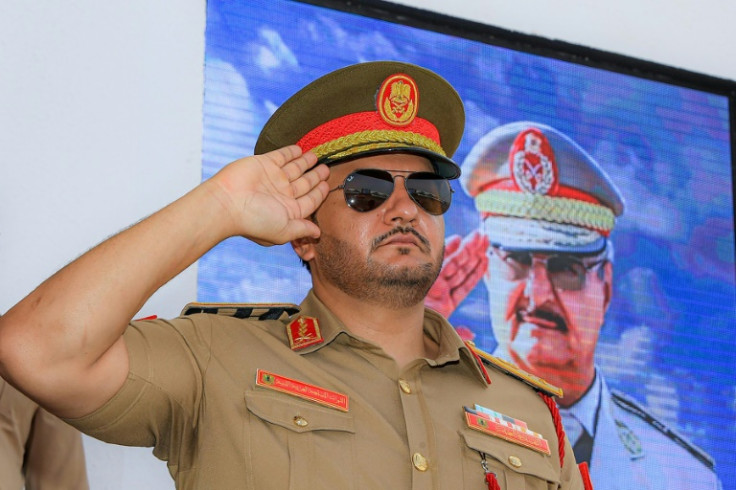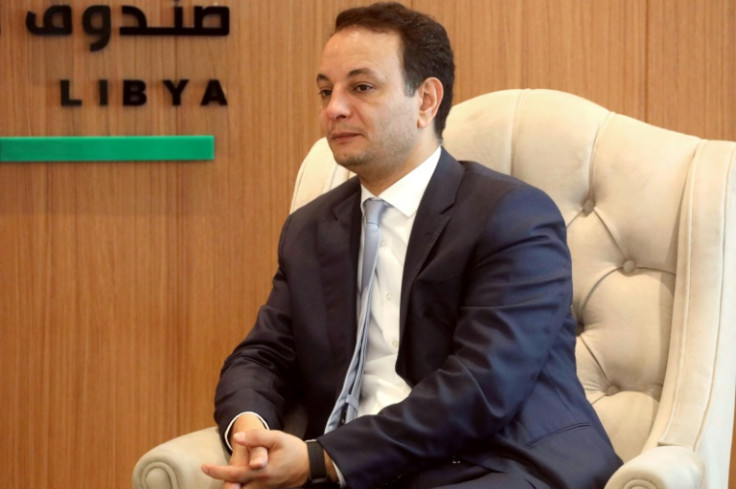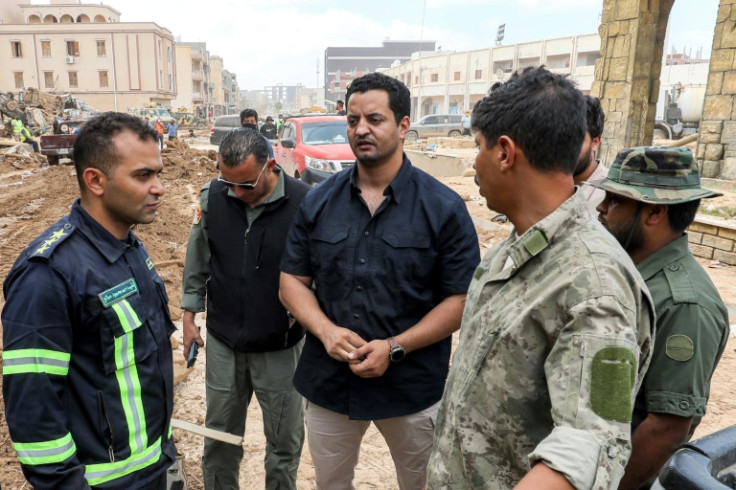Strongman Haftar And Sons Tighten Grip On Eastern Libya

The military strongman in the east of divided Libya, Khalifa Haftar, has named one of his sons as army chief, tightening his family's grip on the oil-rich region.
Saddam Haftar is the third of the field marshal's six sons to assume a key post, and experts see it as a sign the 81-year-old patriarch is preparing for his succession.
They also warn this entrenches the division of the North African country that has been rocked by chaos since the 2011 overthrow of dictator Moamer Kadhafi in a NATO-backed uprising.
Energy-rich Libya is split between a United Nations-recognised government in the capital Tripoli in the west and the Haftar-backed rival administration that rules from Benghazi and Tobruk in the east.
Presidential elections that had aimed to unify the fractured country were scheduled for late 2021 but then postponed indefinitely.
In early June, the strongman's youngest son, General Saddam Haftar, 33, took over as chief of staff of the land forces within Haftar's self-proclaimed Libyan Arab Armed Forces.
Saddam's older brother Khaled was named last July as chief of staff of "security units" within the LAAF.
And in February, another son, Belgacem, took the helm of a newly created development and reconstruction fund.
The appointments continue "what has been from the beginning a private and family army as Haftar bolstered his power", said Wolfram Lacher of the German Institute for International and Security Affairs.
"The inner circle" which controls "key units and resources of this private empire" is comprised of "his sons but also his cousins, his nephews, his sons-in-law," Lacher told AFP.
Haftar was once an ally of Kadhafi but fell out with the dictator and then spent years in the United States, where he gained citizenship, before returning to Libya to help topple him.
In the years of war that followed Kadhafi's ouster and killing, Haftar's forces gained control of about two-thirds of Libya's territory, including crucial oil infrastructure in its Sahara desert south.
In 2019-2020, Haftar tried to seize Tripoli but failed, despite backing from the United Arab Emirates, Egypt, Russia and some Western powers.
His opponents received military support from Turkey.
Haftar is a declared enemy of Islamist forces and the Muslim Brotherhood but critics say he has previously cooperated with jihadists.
Khaled al-Montasser, an international relations professor at the University of Tripoli, said that now the ageing soldier, who suffered a stroke in 2018, is "stepping up the pace" to prepare for his succession.
Imad Jalloul, a Libyan political analyst, said Haftar's allies abroad have begun seeing him as "unfit to lead Libya", hence the need for "new blood".
Lacher said that in recent years Haftar's sons had enjoyed "a rapid rise" through the military ranks, "achieving in no time what would take other officers decades".
He said this "became the subject of mockery" but that "since then, by seeing them every day on social media, the Libyan public started to get used to them".
Lacher said that Saddam Haftar now holds real military power and a key role in murky business dealings in a graft-ridden country notorious for trafficking of irregular migrants.
The expert said Saddam has a hand in "repression, managing trafficking, embezzling public funds and negotiating shady transactions with political rivals in Tripoli".
The recent reshuffles are "a clear sign of preparation for the day when Haftar disappears and when his entire power structure is then in danger," Lacher added.
"It is also a sign that Haftar himself is getting older and can no longer manage this structure all on his own."
Jalloul said the Haftar clan has brutally repressed opponents across a vast stretch of eastern and southern Libya, where political, tribal and civil society figures have been arrested, disappeared or killed.
The latest example was the death in April of activist Siraj Dughman while in detention at a military base controlled by Haftar.
Last December, former defence minister Al-Mahdi al-Barghathi and six others died in custody while in custody of eastern authorities after their arrests in Benghazi.
Lacher said that "what's distressing to see in recent months is that Western and UN diplomats, by publicly meeting Haftar's sons, have begun to legitimise this family power structure, which sees the country's two thirds and its underground wealth as private property".



© Copyright AFP 2025. All rights reserved.





















